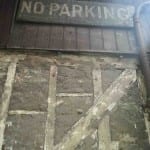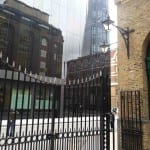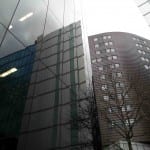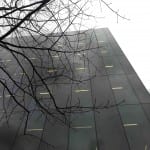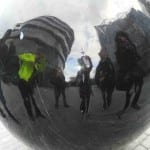“So, what are ECRs?” I hear you ask… An ECR is an Early Career Researcher. This project has 3 ECRs, who are all at early stages of an academic career. The project gives them the opportunity to further develop their skills in working in community heritage. Their role is to provide support to HLF ‘All Our Stories’ funded groups and to assist with our ongoing project partnerships. Here they are to introduce themselves…
Anna
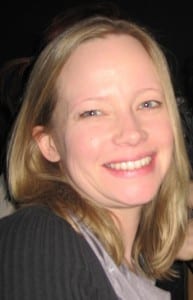
My name is Anna Sexton and I am a PhD student in the Department of Information Studies at UCL. My current research is being carried out in partnership with the Wellcome Library. I am looking at how mental health has been represented over time in the Wellcome Library’s archives and manuscripts collections. I am particularly interested in exploring ‘voice’ within these collections, and I have found that despite shifts in collecting patterns in recent decades, the ‘voice’ of the professional expert is still the predominant representation through which concepts of mental health are shaped. I am actively seeking to contribute to redressing the balance of ‘voice’ within the collections by working with a small group of contributors with lived experience who are building digital archive collections based on their personal stories of mental health recovery. We are hoping to launch these digital collections in November 2013. Through this work with the Wellcome Library, I am able to explore the concept of ‘participatory practice’ and what it means in an archival context and in particular I am able to look at issues relating to power, control, authority and representation in the creation and ongoing preservation of archives.
Prior to starting my PhD, I managed the Archives Service in Peterborough where I was able to work with a range of community groups on heritage projects. My highlights involved developing a ‘Young Cultural Creators’ programme aimed at 16-19 year olds outside mainstream education who came to create and perform poetry that used our archive collections for inspiration. I also enjoyed working with local occupational therapists to develop local history courses for mental health service users; and I enjoyed partnering with local community groups such as the Baker Perkins Historical Society in celebrating their heritage. I am also still involved in Peterborough as a board member for the HLF funded Forty Years On project: http://www.vivacity-peterborough.com/libraries-and-archives/forty-years-on/ Working with Eastern Angles Theatre Company on the bid and securing the funding for the project was definitely the highlight of my time in Peterborough!
Tina

I am a PhD student at UCL Institute of Archaeology, where I also completed my BA and MA degrees in Egyptian Archaeology and Archaeology respectively. After my undergraduate degree I worked as the Institute’s Undergraduate Administrator, and I have also worked as an administrator for the Egypt Exploration Society (EES). I have worked on a range of archaeological projects in Britain, Spain and Egypt, and co-ordinated and contributed to various outreach projects, including the Festival of British Archaeology, Young Archaeologists’ Club (YAC), taster days in archaeology and adult education talks.
My doctoral research examines the role of folklore in archaeological investigations, particularly examining the emergence and reproduction of folktales associated with archaeological sites in Britain from the medieval period to the present day and the role these play in the construction of local and national identities and identity movements, as well as how such folklore represents the diverse engagements with archaeological sites by various social groups. I use historical, folkloric and archaeological archives in my research, as well as collect primary data from site visitors and local residents through questionnaires, the latter contributing to an assessment of what kinds of stories the public today tell about archaeological sites and how these fit into notions of ‘heritage.’ I am co-organiser (with the Folklore Society) of the annual ‘Popular Antiquities: Folklore & Archaeology’ conferences. My other research interests include the use and role of archaeology in popular culture, predominantly in fantasy, Gothic and horror literature and film, and in the interplay between archaeology, folklore and fantastic fiction. I am also involved with the British Film Institute’s (BFI) ‘British Gothic’ programme, for which I am contributing to the creation of educational resources using the BFI’s film and special collections archives pertaining to this theme.
Sarah

Like Tina, I am also a PhD student at UCL Institute of Archaeology! I also completed my BA in General Archaeology and MA in Public Archaeology at the Institute. Between my undergraduate degree and my MA, I began working in museums. I was an Explainer at the Science Museum, which was a brilliant experience and taught me a lot about presenting sometimes complex ideas to different audiences. They also allowed me to go part-time to do my MA. Since then I have worked at UCL as a Widening Participation Officer. I also work as a freelance archaeology and education specialist. This takes me to all sorts of sites and museums, working with schools (outreach and organising visits) and communities. I have also been involved in creating interpretation for sites. I am one of the leaders of UCL’s branch of the Young Archaeologists’ Club (YAC). I have worked on Dig Where We Stand since it began in 2012.
My PhD research is about how people in Southall, West London, view the past. My research is influenced by the theory of social construction, which suggests that we co-construct our knowledge and understanding of the world around us. In particular, I am interested in exploring the relationship between people’s identities and the past. As an archaeologist, I am interested in whether archaeology is part of this relationship or the role it could play. My other research interests are related to the public relationship with heritage, the role of archaeology in education, and communicating the past.

 Close
Close



